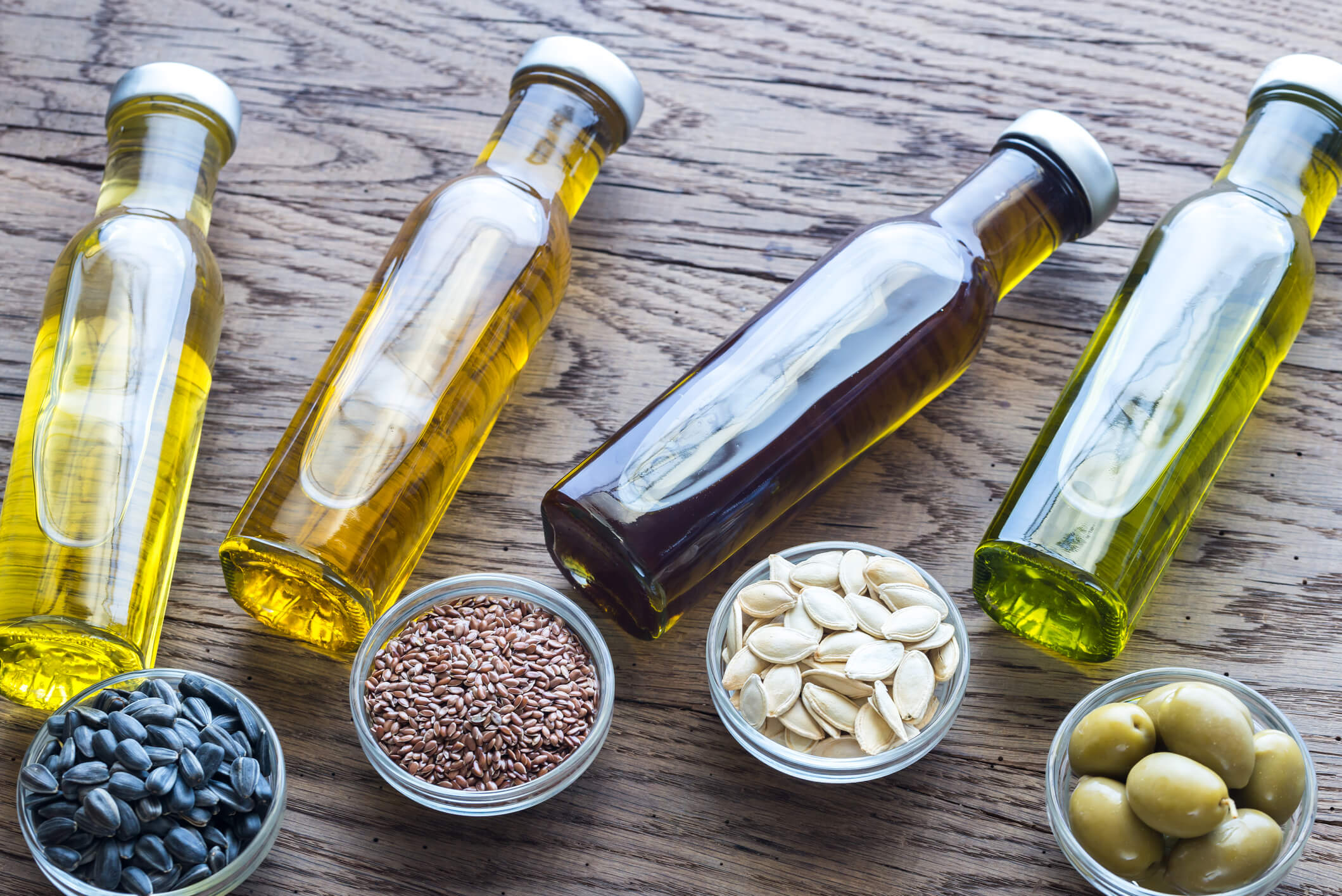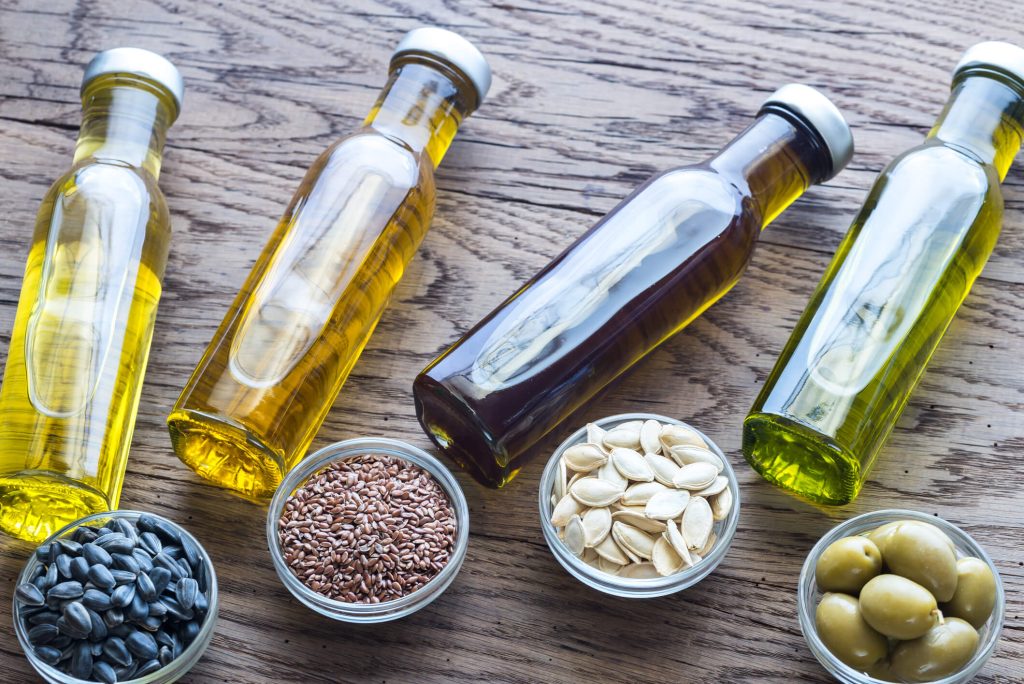
What Are the Best Fats for YOUR Body?


What Are the Best Fats for YOUR Body?
Some people don’t have the genetics to consume, convert, and assimilate coconut oil. Matt consumed much coconut oil, and his triglycerides were through the roof. After cutting it out, it went back down to normal.

Some people have genes such as:
ADRB2 produces a beta-2 adrenergic receptor, which takes signals from adrenaline. Therefore, it affects your fight or flight response, which is important for exercise performance and fat burning.
It’s a “thrifty gene” because it can make our bodies more efficient at using as few calories as possible to function. While efficiency might sound good, in practical terms, it’s easier to get more out of the calories you eat and store the extra in your fat tissue.
The GG variant is the most efficient, so those with this may consider keeping to an especially lower saturated fat plan. The AA and AG variants are better at burning excess calories.
APOA2: The “eat fat, get fat” gene (satiation gene). This enzyme regulates appetite. Those with CC variants tend to have a higher BMI when saturated fats are included in the diet. CT and TT do not show this association.
People with CC variants will get hungrier and eat more if they eat a lot of fat, especially saturated fat. So if you have this variation and eat a lot of fat – YOU HAVE TO MOVE and burn calories, or you will get FAT.
FTO: The Hangry Gene regulates the hunger hormone ghrelin. The FTO gene impacts overall body fat depending on how much fat you eat, especially saturated fat.
The CC and CT variants tend to hold on to fat, so you need less fat in your diet. The TT variant has an easier time letting go of fat stores. People who have the C variant, especially homozygous, are hungry. Balancing blood sugar is the key.
LPL: This gene helps to modulate whether saturated fats are stored as body fat or burned as fuel and plays a role in how saturated fats are broken down for energy.
Those with the GG variant of this gene break down saturated fats and use them for energy easily. However, this gene’s CG and CC variants have less ability to tolerate saturated fats in the diet since they can easily convert them to cholesterol.

APOC3: This gene regulates blood triglyceride levels and LDL cholesterol (the “bad” cholesterol). Saturated fats in the diet are the modulating factor of how strongly a role this gene plays.
Those with the CC variant of this gene have a significantly increased risk of atherosclerosis and elevated blood lipid levels when they eat a lot of saturated fats. Those with the GG and GC variants do not share this increased risk.
If you have genetics that suggests saturated fats are bad for you, or you’re not sure, it’s best to focus on monounsaturated fats. These are good for your blood lipids. Also, they’re not as easily damaged by oxidation as polyunsaturated fats like omega-3 and omega-6. All fat sources combine saturated, monounsaturated, and polyunsaturated fats. But the following and their oils are predominantly monounsaturated fats:
- Avocadoes
- Macadamia nuts
- Olive oil
- Lard (although it’s also high in saturated fats, it’s higher in monounsaturated fats)
Essential Fatty Acids Everyone Should Consume More Of
Essential fatty acids refer to omega-3 and omega-6 fats. Since most restaurant and processed foods are cooked with vegetable oils, and most animals are fed grains and corn, you’d likely already be eating plenty of omega-6 fats.
Regardless of genetics, most people nowadays can benefit from consuming more omega-3 fatty acids, especially the long-chain ones. These include DHA and EPA, mostly found in fish and seafood. Shorter-chain ones, like ALA, require your body to convert into long-chain.
Here are the top 8 best sources of omega-3 fats:
- Caviar – (fish eggs) are the champ coming in at 6,786 mg of EFAs per 100 grams
- Mackerel – comes in at over 5,134 mg of EFAs per 100 grams
- Herring – has 2,366 mg of EFAs per 100 grams
- Salmon – has 2,260 mg of EFAs per 100 grams
- Cod liver oil – has 2,682 mg per TBSP
- Anchovies – have 2,113 mg of EFAs per 100 grams
- Sardines – have 1,480 mg of EFAs per 100 grams
- Oysters – have 435 mg of EFAs per 100 grams
Here are the top long-chain omega-3 fat options for vegetarians and vegans:
- Algal oil (derived from algae) – has 500 mg of EFAs per dose
- Perilla oil (derived from perilla seeds) – has 9,000 mg of ALA omega 3 per TBSP
- Flaxseeds – have an epic 6,388 mg of ALA Omega 3s per ounce
- Hemp seeds – have a whopping 6,000 mg of ALA Omega 3s per ounce
- Chia seeds – have 4,915 mg of ALA Omega 3s per ounce
- Brussels sprouts – come in at over 125 mg of EFAs per half cup
- Walnuts – have 2,542 mg of ALA Omega 3s per ounce
Vegetarians and vegans need to be more vigilant regarding EFAs to ensure they’re getting enough DHA.
DHA is critical for brain function, eyes, reproductive function, and much more. Yes, the body can convert some of the ALA from seeds into DHA and EPA, but not efficiently. A much better source is to consume microalgae.
Fats Everyone Should Avoid

Choosing the right fats to consume is critical. However, selecting which fats to avoid is far simpler and just as important.
- Artificial trans fats are most likely the unhealthiest fat you can eat. Be aware that on labels, it’s often listed as “partially hydrogenated oils.”
- Vegetables and most seed oils are too high in omega 6s. This imbalance in omegas can contribute to inflammation. We strongly suggest avoiding or minimizing these popular cooking oil options:
- Soybean oil
- Corn oil
- Cottonseed oil
- Sunflower oil
- Peanut oil
- Sesame oil
- Rice bran oil
CONCLUSION
We have shown that your genetic variety influences which fats are better for your body.
You may boost your brain function, visual function, reproductive function, and much more by taking Omega-3, particularly long-chain omega-3 fatty acids (DHA and EPA), typically found in fish and shellfish.
On the other hand, consuming artificial trans fat, vegetables, and most seed oils high in omega-6s may have negative health impacts, including inflammation.
References
- Sarpeshkar V, Bentley DJ. Adrenergic-beta(2) receptor polymorphism and athletic performance. J Hum Genet. 2010;55(8):479-485. doi:10.1038/jhg.2010.42
- Lopez-Garcia E, Schulze MB, Meigs JB, et al. Consumption of trans fatty acids is related to plasma biomarkers of inflammation and endothelial dysfunction. J Nutr. 2005;135(3):562-566. doi:10.1093/jn/135.3.562
- Calder PC. Functional roles of fatty acids and their effects on human health. JPEN J Parenter Enteral Nutr. 2015;39(1 Suppl):18S-32S. doi:10.1177/0148607115595980
- Kiage JN, Merrill PD, Robinson CJ, et al. Intake of trans fat and all-cause mortality in the Reasons for Geographical and Racial Differences in Stroke (REGARDS) cohort. Am J Clin Nutr. 2013;97(5):1121-1128. doi:10.3945/ajcn.112.049064
- Simopoulos AP. The importance of the ratio of omega-6/omega-3 essential fatty acids. Biomed Pharmacother. 2002;56(8):365-379. doi:10.1016/s0753-3322(02)00253-6
